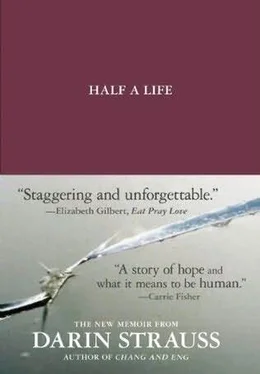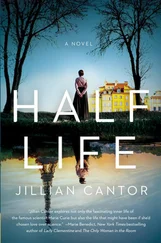He raised his nose, a quick and wordless What’s up . He was one of the people who’d been remembered by no one, and I thought to give him a backslap, learn his name, but that felt false to me, too. We face-gestured at each other a second time. And next (because life isn’t any more afraid of cliché than we are) I jostled out the door and saw a good friend of Celine’s. This guy had maybe even been her boyfriend: part of Melanie Urquhart’s clique.
He was talking close with arrogant lips to some people I had barely known even back when. His hair was neat as a haiku. And everything seemed just as it had with Melanie ten years before. The guy showed me a rigid, squint-eyed nod. I paused, my cheeks went warm; I scuttled off to my car. I hated that moment: I was angry at the pause, angry at my legs. I had neither sauntered right over to say hi ( This is behind me ) nor kept moving with my head up ( You think the wrong thing about me, and it doesn’t matter ). Maybe this is as near to time travel as we can know. Not the sort that undoes events, but the situations (the same faces, words, and gestures; the same internal responses) that bring back former selves. Everything between past and present hadn’t disappeared but grown incredibly slim, a wall between now and before that seemed to occupy no space at all. I was the person I had been. This guy was who he had been. Someone all of us used to know was long dead. And the person who’d killed her was making his way home, after pointedly not ordering a single alcoholic drink because he didn’t want anyone to see him and have DUI thoughts.
Four years later. It was after 1 a.m., the window cracked open. Breeze and quiet. The empty platform of a night, waiting for the next day to roll in.
“What’s on your mind?” Susannah was asking.
We’d just moved in together. I’d climbed out of bed, walked to the kitchen.
Susannah said, “How often do you think about it?” She was rubbing her cheeks awake. “So I’m right, aren’t I? The car crash.”
“Probably less than once a day,” I said. “I don’t know.”
The accident still turned me shy. She came up to face me. I said, “I guess once a week, maybe.”
We’d been together a pretty long while, and by now could decipher the intonation of the glance. “I’m just asking,” she said.
“That’s a lot less than I used to think about it,” I said. It was shyness not unlike the feeling you get in classroom dreams about being unprepared for the surprise oral exam. I said, “Why ‘just asking’? Do I sound touchy?”
“You still use ‘once a day’ as a point of reference? How often did you used to think about it?” She moved to the kitchen table. “Not touchy, Darin — it’s just, you never bring it up.”
Susannah’s mix is innocent and hardheaded; she settles on a position without worry, and stays put.
I squinted and grimaced my authentic surprise. “I can’t believe it’s down to once a week now.”
A garbage truck blustered past: clang and rattle across a sleeping street.
Relationships are physics. Time transforms things — it has to, because the change from me to we means clearing away the fortifications you’ve put up around your old personality. Living with Susannah made me feel as if I had started riding Einstein’s famous theoretical bus. Here’s my understanding of that difficult idea, nutshelled: if you’re riding a magic Greyhound, equipped for light-speed travel, you’ll actually live through less time than will any pedestrians whom the bus passes by. So, for a neighbor on the street with a stopwatch, the superfast bus will take two hours to travel from Point A to Point B. But when you’re on that Greyhound, and looking at the wipe of world out those rhomboidal coach-windows, the same trip will take just twenty-four minutes. Your neighbor, stopwatch under thumb, will have aged eighty-six percent more than you have. It’s hard to fathom. But I think it’s exactly what adult relationships do to us: on the outside, years pass, lives change. But inside, it’s just a day that repeats. You and your partner age at the same clip; it seems no time has gone by. Only when you look up from your relationship — when you step off the bus, feel the ground under your shoes — do you sense the sly, soft absurdity of romance physics. It had been four years since my ten-year reunion. I did math in my head about Celine all the time. I’d struck her bicycle when I was eighteen. I was now thirty-two: closing in on a decade and a half since the accident. I’d entered adulthood sensing Celine with me. I’d entered romantic life sensing Celine with me. The person inside the bus, ignoring the stopwatch that measured years, had my teenage face.
Discussing the accident with Susannah now, I felt the brain-hesitation, the sudden focus you get before a life shifts.
“I think,” she said, dropping into a seat at the table, “we need to discuss it.”
I sat, too.
Susannah kept talking. Asking did I think of going to a therapist ever — is there something you need that I can do? We’d recently ratcheted up our commitment, and this was night-speak, pledged allegiance; it hardly mattered what she said, more that she was taking the time to say it. Really, honey, have you considered therapy, which is something I can help you with.
“Hard to believe that it’s down to just once a week now,” I repeated. Was the decreased frequency of my thinking about Celine a good thing or a bad thing? “It sounds shitty out of my mouth,” I said.
“Not at all,” she said, lowering eyelids, talking fast, crumbs of reticence.
Whenever I got tired of — not tired of; self-conscious and immature about — examining my own motivations, an untrusting part of me examined her motivations. I could see calculation in Susannah that she was unaware of. (Or could I?) It was in her interest, as well, not to linger at a moment when I questioned my goodness. Maybe it would start up her doubts about me. And nobody wants to go through that.
“Well,” she was saying, “it’s like what’s the name of that term? No, it seems strange you’d want to deal with this by yourself.” Her forehead made its crinkles; she crunched her eyebrows together. There was something both fussy and loving in this. “Survivor’s guilt. That’s the term,” Susannah said.
She got up and went to the fridge.
“Really, Darin, what about just talking to somebody?” she said. “I mean a new … someone.”
I waved her off with a gesture that meant phooey . She’d heard about my day with the Shrink, that rough, wet afternoon.
“I really question your decision not to try,” she said, in a darker voice.
Whoa. I couldn’t believe it. Was she going to let me down? Was I going to tell myself she’d let me down, just so I could avoid talking about it?
She lifted her eyebrows, to say that she was looking for some response. My brows frowned out an answer: I have no response, because your idea’s unwelcome. It’s a totally unwelcome idea. All the New York street noise was getting blown right back in the window.
Susannah turned, and was now reaching and digging something out of the refrigerator.
I crumpled back in my chair distractedly, rudely. “I don’t know,” I said in a mock-tired voice. “Why would you push this?”
Susannah pretended she hadn’t caught my tone. Outside, there was wide 9th Street, the livid brick of Methodist Hospital, then Prospect Park’s great isolating meadow. My cheeks started guiltily to burn. Was it really down to just once a week now?
Susannah came away from the fridge holding a pitcher of water. She walked to the counter, poured out two glasses, then handed me one. “Well,” she said.
Читать дальше









